Best
Studio Recording String
-
Overall: These Nickel Steel Strings Offer A Warm And Resonant Tone Even When The Guitar Is Not Plugged Into An Amp
-
Best Feature: STRING GAUGES: 0.09-0.42
-
TedScore™: 9/10
Best
String for
Acoustic Guitar
Earthwood Phosphor Bronze PERFECT FOR BENDING AND SHREDDING
ON AN ACOUSTIC GUITAR
-
Overall: The Strings Are Premium Quality And Tune Together Nicely With The Bass And Treble Frequencies
-
Best Feature: Medium-Light - 0.12-0.54
-
TedScore™: 9.5/10
Best
String for
Tuning
EXL 110-3D THICKER STRINGS THAT CAN
EASILY BE BENT AT
HIGHER FRETS
-
Overall:
Thick Strings
Perfect For Frequent Tuning Changes -
Best Feature: STRING GAUGES: 0.10-0.46
-
TedScore™: 8.5/10
Are you ready to settle the ultimate string showdown? We’re going to headfirst into Ernie Ball Vs D’addario, two titans of the guitar string world that have musicians buzzing with excitement!
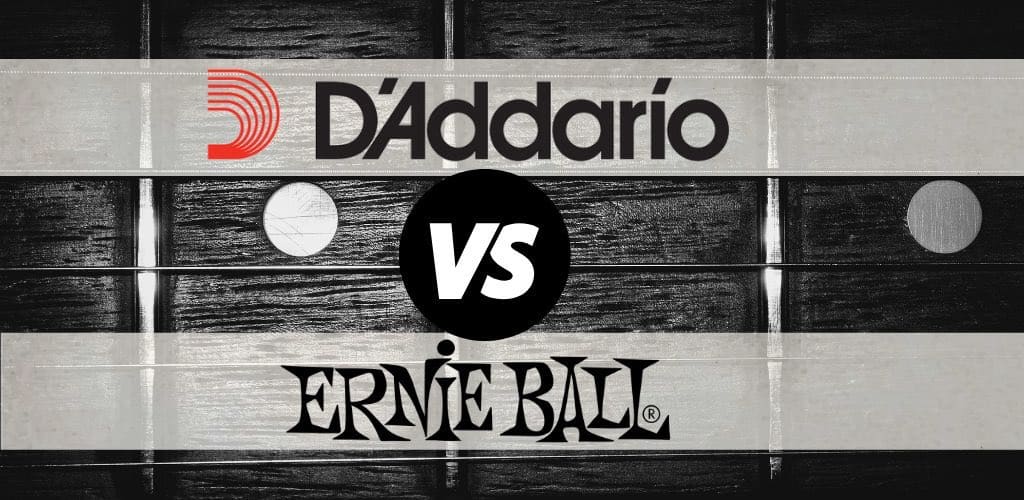
We’ll explore the unique features, tones, and vibes of both brands, helping you find the perfect fit for your guitar. D’Addario NYXL strings are often considered a benchmark for quality in electric guitar strings, and they are known for their superior tuning stability, durability, and sound quality.
So grab your picks and get ready to discover which strings will take your playing to the next level—let’s get strumming!
The Legacy of
Ernie Ball Strings
Let’s kick things off with Ernie Ball, a name synonymous with quality and innovation in the guitar world. Founded in 1962, Ernie Ball has been at the forefront of string manufacturing for decades.

Innovative Spirit: Ernie Ball was the first company to offer round-wound guitar strings, revolutionizing the sound and feel of electric guitar strings. This innovation set the stage for modern playing styles and techniques.
Artist Endorsements: The brand has a long list of endorsements from legendary musicians, including Eric Clapton, Jimmy Page, and John Mayer. These endorsements speak volumes about the quality and reliability of Ernie Ball strings.
Wide Range of Products: Ernie Ball offers a diverse selection of strings, including their famous Slinky series, which comes in various gauges and materials. Whether you’re a rock, blues, or country player, there’s an Ernie Ball string for you.
Quality Control: The company prides itself on rigorous quality control, ensuring that each set of strings meets high standards. This commitment to excellence has earned them a loyal customer base.
ERNIE BALL 2223 SUPER SLINKY

FEATURES: These Nickel Steel Strings Offer A Warm And Resonant Tone Even When The Guitar Is Not Plugged Into An Amp
OTHER INFO: STRING GAUGES: 0.09-0.42
- Clarity throughout the entire fretboard
- Highly versatile
- The nickel plated steel strings sound great without an amp
- Not the best option for guitarists who like a dark tone
When you click ‘Check Price’, you’ll see there are loads of great places to buy this item. Our personal favorite is Sweetwater for the US, and Thomann and Gear4Music for the UK & Europe.
They are the largest music retailers, with excellent customer service, competitive prices, really fast shipping, and the longest guarantees.
The professional musician who wrote this article combined many things,
from the product build, manufacturer’s reputation through to feedback
from other users, to create our famous TedScore™.
Ernie Ball Earthwood
Phosphor Bronze
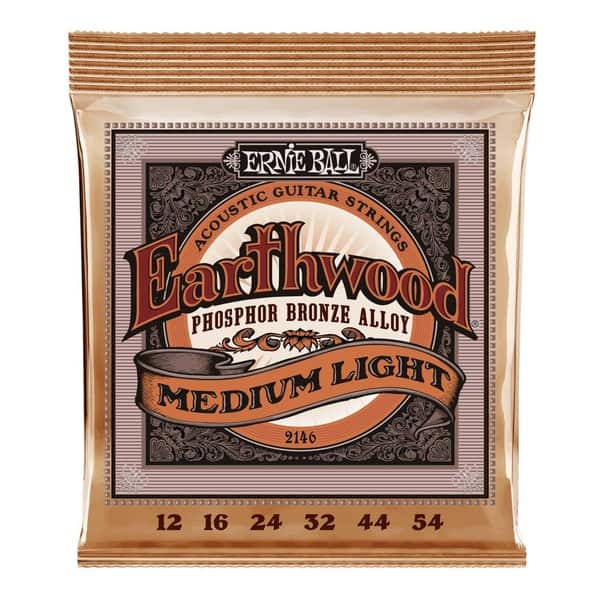
BEST OPTION FOR: Guitarists who like to solo on acoustic guitar
STRING GAUGES: Medium-light - 0.12-0.54
FEATURES: The strings are premium quality and tune together nicely with the bass and treble frequencies
Ernie Ball Earthwood
Phosphor Bronze
- Rich, warm, and clear tone
- Great for solo performances
- The strings come in medium and light gauges
- The strings can snap easily
When you click ‘Check Price’, you’ll see there are loads of great places to buy this item. Our personal favorite is Sweetwater for the US, and Thomann and Gear4Music for the UK & Europe.
They are the largest music retailers, with excellent customer service, competitive prices, really fast shipping, and the longest guarantees.
The professional musician who wrote this article combined many things,
from the product build, manufacturer’s reputation through to feedback
from other users, to create our famous TedScore™.
The D'Addario
Strings Heritage
Now, let’s turn our attention to D’Addario, another heavyweight in the string game. Established in 1974, D’Addario has built a solid reputation for producing high-quality strings for guitarists around the globe.

Family-Owned Tradition: D’Addario is a family-owned business with a rich history in string manufacturing, dating back to the 17th century. This legacy adds a touch of authenticity to their products.
Innovative Technology: D’Addario is known for its innovative technologies, such as its EXP coated strings, which offer extended life without sacrificing tone. This commitment to research and development keeps them ahead of the curve.
Variety of Options: D’Addario offers an extensive range of strings, including their popular NYXL series, which is designed for enhanced tuning stability and durability. No matter your playing style, D’Addario has a string that fits your needs.
Sustainability Efforts: The company is dedicated to sustainable practices and using eco-friendly packaging and materials. This commitment to the environment resonates with many modern musicians who prioritize sustainability.
D’ADDARIO EXL 110-3D

FEATURES: Thick Strings Perfect For Frequent Tuning Changes
OTHER INFO: STRING GAUGES: 0.10-0.46
- Durable
- Best for drop tunings
- High-end performance
- Some beginners find the thicker gauge uncomfortable
When you click ‘Check Price’, you’ll see there are loads of great places to buy this item. Our personal favorite is Sweetwater for the US, and Thomann and Gear4Music for the UK & Europe.
They are the largest music retailers, with excellent customer service, competitive prices, really fast shipping, and the longest guarantees.
The professional musician who wrote this article combined many things,
from the product build, manufacturer’s reputation through to feedback
from other users, to create our famous TedScore™.
Guitar String Materials and Construction
Guitar strings are crafted from a variety of materials, each bringing its own unique flavor to your sound. The most common materials for electric guitar strings are nickel, steel, and cobalt.
Nickel-plated steel strings, like those from D’Addario and Ernie Ball, are celebrated for their bright and versatile tone, making them a go-to choice for many guitarists.
These strings strike a perfect balance between warmth and clarity, ensuring your riffs and solos cut through the mix.
For those seeking a bit more punch, Ernie Ball’s cobalt strings might be the answer. Cobalt strings create a stronger magnetic relationship between the pickups and the strings, resulting in increased output and a more aggressive sound. This makes them ideal for genres that demand a bit more edge and power.
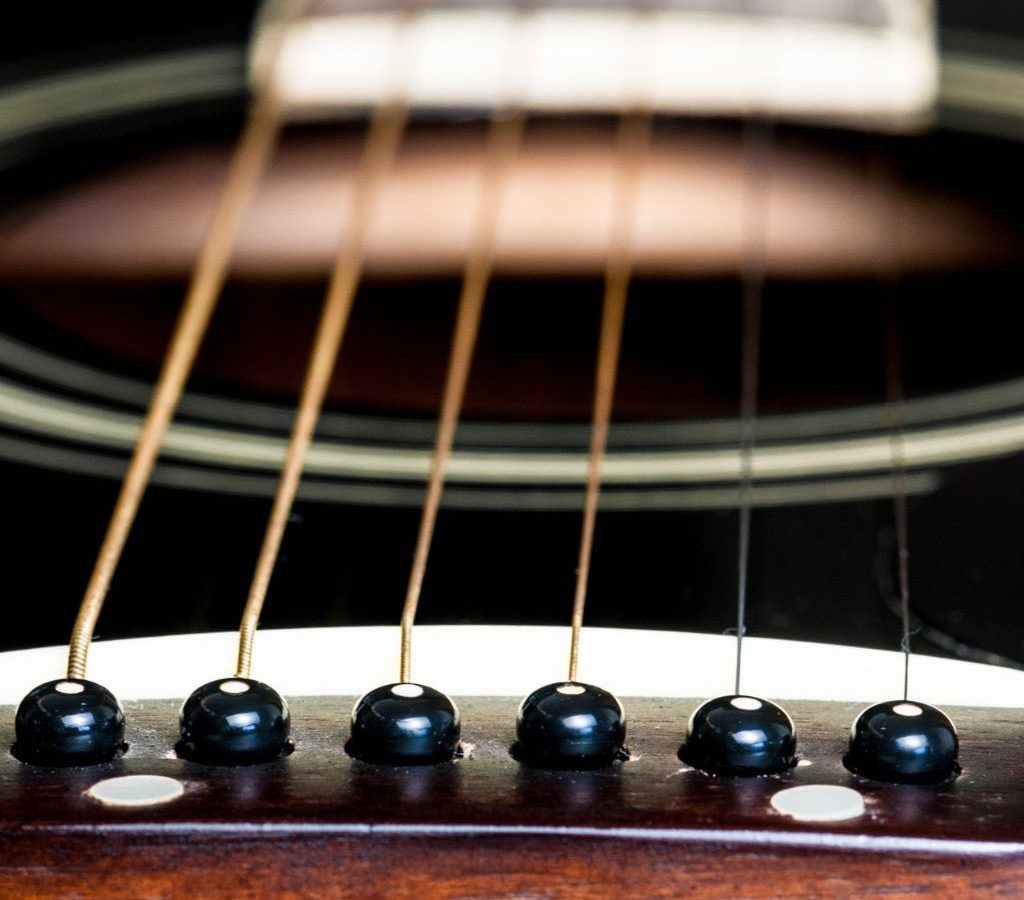
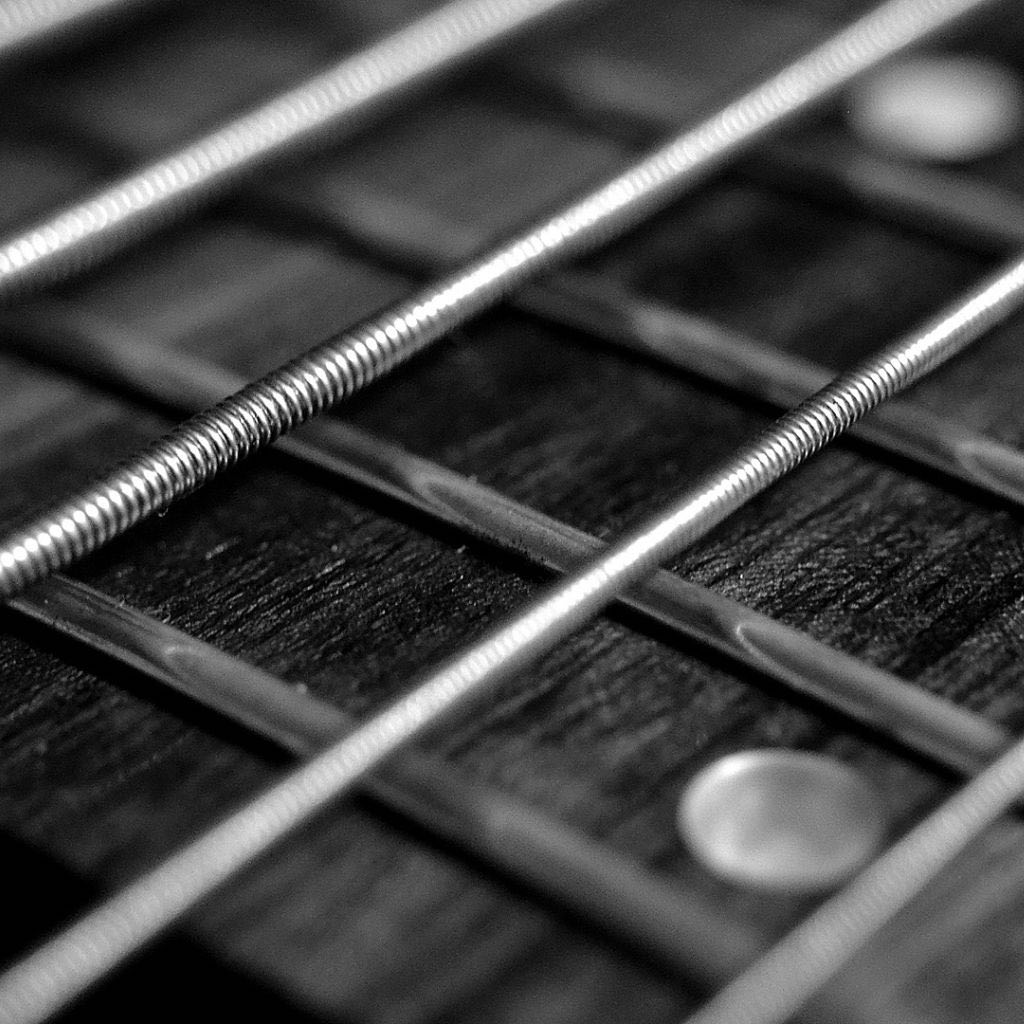
On the other hand, Elixir strings, known for their NANOWEB coating, offer a different advantage. This coating reduces string squeak and significantly increases the lifespan of the strings, making them a favorite among players who want to minimize maintenance without sacrificing tone.
Whether you’re looking for the bright versatility of nickel-plated steel or the durability of Elixir strings, understanding the materials can help you find the perfect match for your playing style.
Electric Guitar String Windings and Gauges
When it comes to electric guitar strings, the winding and gauge play crucial roles in shaping your instrument’s tone and playability. Wound strings, which have a wire wrapped around a core, produce a richer, more textured sound.
These are typically used for the lower strings, providing depth and resonance. Plain strings, made from a single strand of wire, are used for higher pitches and offer a brighter, more direct tone.
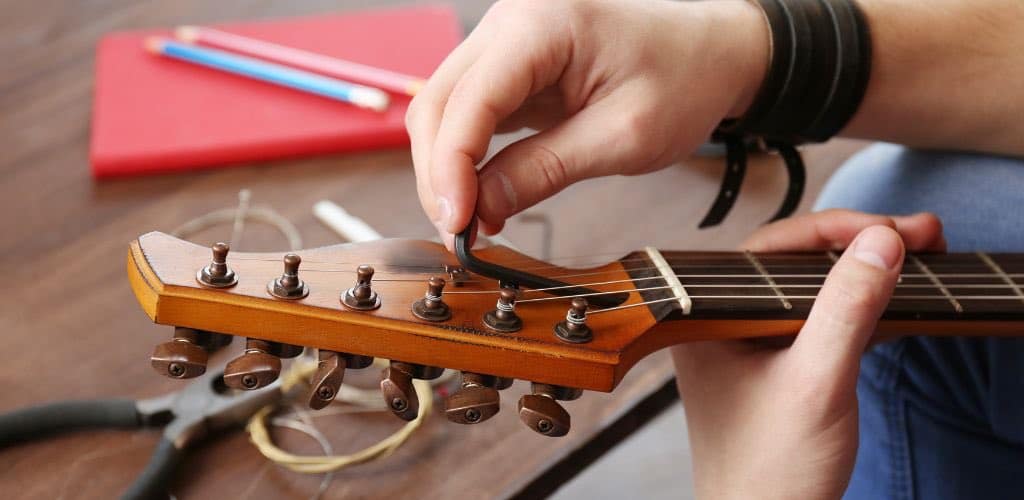
The gauge of a string, or its thickness, also significantly impacts your playing experience. Lighter strings, such as those in the 0.009-0.042 range, are easier to bend and produce a brighter tone, making them ideal for lead guitarists who love to shred.
Heavier strings, like the 0.011-0.052 sets, offer a fuller, more robust sound, perfect for rhythm playing and genres that require a heavier touch.
Both Ernie Ball and D’Addario provide a wide range of string gauges to cater to different preferences. Whether you prefer the super light feel of Ernie Ball’s Super Slinky series or the balanced tension of D’Addario’s EXL series, experimenting with different gauges can help you find the perfect fit for your style.
Tone and Feel:
What’s the Difference?
When it comes to guitar strings, tone and feel are crucial factors in your playing experience. Let’s break down how Ernie Ball and D’Addario compare in these areas.

Ernie Ball’s Brightness: Many players describe Ernie Ball’s strings as bright and punchy, making them ideal for genres like rock and pop. The round-wound design contributes to a crisp attack that cuts through the mix.
D’Addario’s Warmth: D’Addario strings are often praised for their warm, rich tone, which is particularly appealing for fingerstyle and acoustic players. The materials used in their strings promote a smooth, balanced sound.
Playability: Both brands offer excellent playability, but some players find Ernie Ball strings to be slightly more flexible. This flexibility can make bending notes and playing fast passages feel effortless.
Tension and Gauge: The tension and gauge options vary between the two brands, affecting how the strings feel under your fingers. Players should experiment with different gauges to find the perfect balance for their playing style.
Performance Characteristics
The performance characteristics of guitar strings can vary widely based on their material, winding, and gauge. Nickel-plated steel strings, such as those from D’Addario and Ernie Ball, are renowned for their durability and resistance to corrosion, making them a reliable choice for regular players.
These strings offer a balanced tone that suits a variety of genres, from rock to blues.
Cobalt strings, while offering increased output and a punchier sound, are more prone to corrosion. However, their enhanced magnetic properties make them a favorite for players seeking a more aggressive tone.
If you’re looking for strings that can handle high-output pickups and deliver a powerful sound, Ernie Ball’s cobalt strings are worth considering.
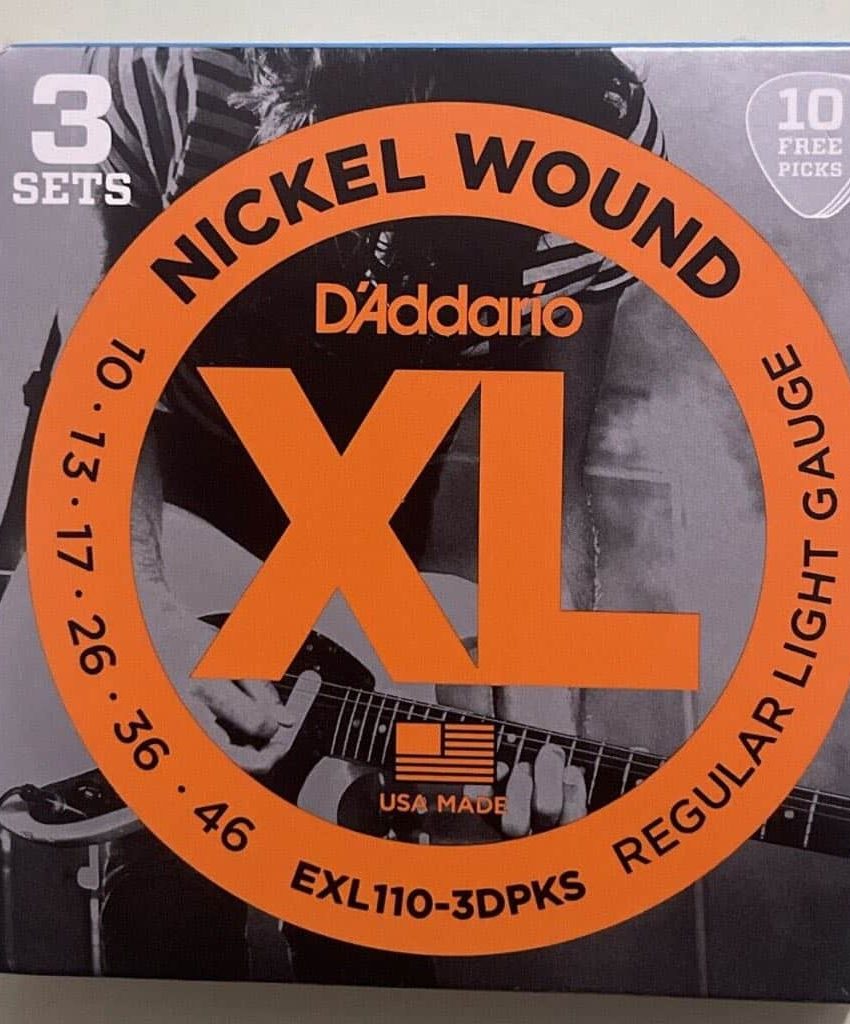
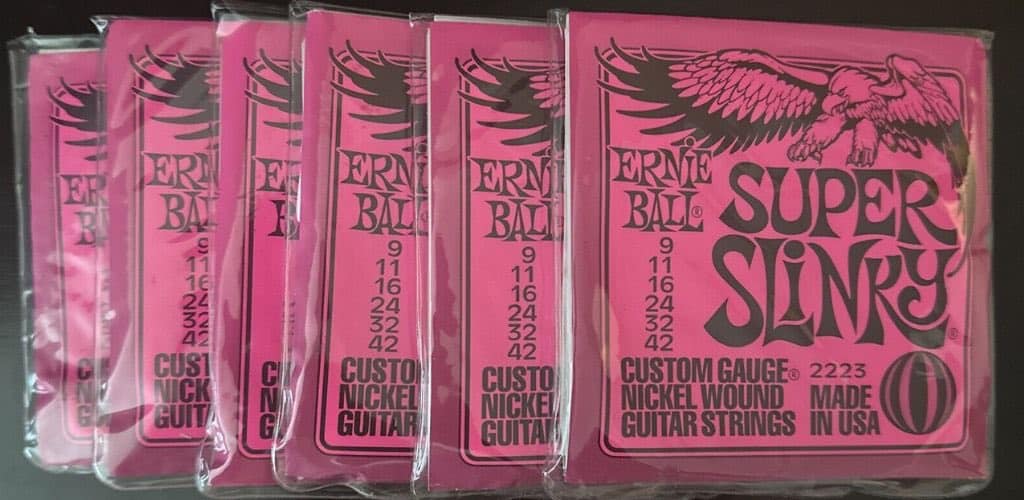
Elixir strings, with their NANOWEB coating, provide a unique advantage by reducing string squeak and significantly extending the lifespan of the strings. This makes them an excellent choice for players who want to spend more time playing and less time changing strings.
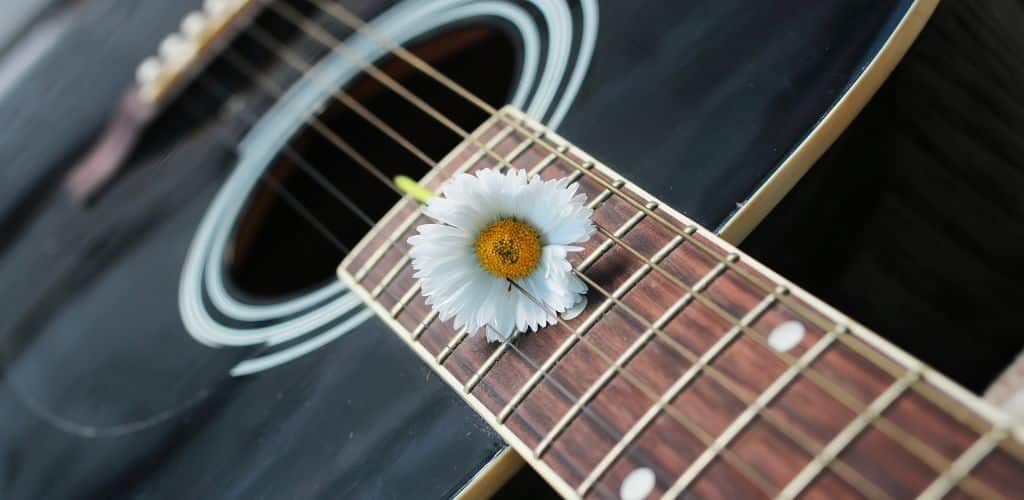
The coating also helps maintain a consistent tone over time, ensuring your guitar sounds great for longer periods.
When choosing guitar strings, it’s essential to consider these performance characteristics to find the best fit for your playing style and preferences.
Whether you prioritize tone, playability, or durability, understanding the nuances of different strings can help you make an informed decision and elevate your playing experience.
Durability and Longevity
Durability is a key consideration when choosing guitar strings, especially for gigging musicians. Let’s see how Ernie Ball and D’Addario stack up in this department.
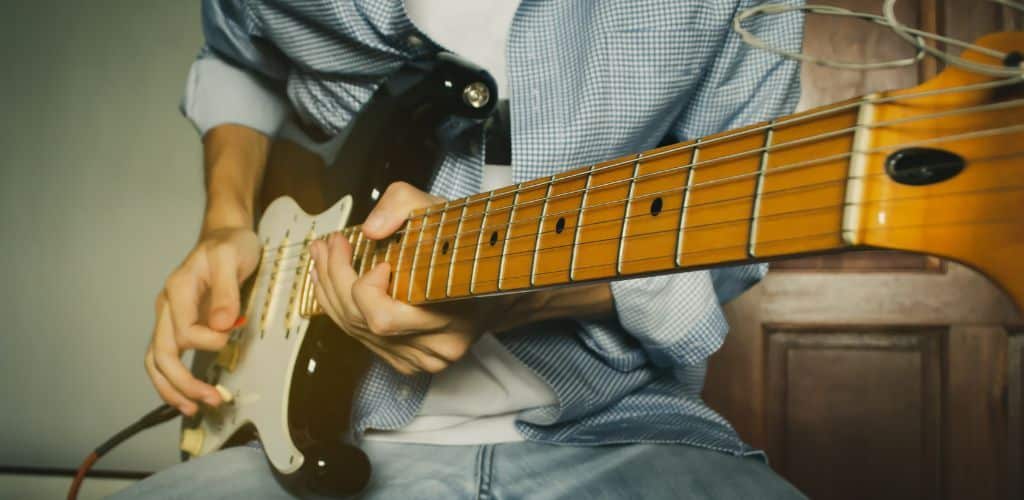
While many players love the sound of fresh Ernie Ball strings, they may not last as long as some other options. However, their bright tone often makes players willing to change strings more frequently.
D’Addario’s EXP coated strings are designed to last longer without sacrificing tone. The coating protects against dirt and sweat, making them a popular choice for those who play regularly.
Both brands offer options that resist corrosion, but D’Addario’s coated strings have an edge in longevity. This is particularly beneficial for players in humid environments or those who sweat while playing.
Ultimately, durability can be subjective based on individual playing habits. Some players prefer the fresh sound of newly changed Ernie Ball strings, while others appreciate the longevity of D’Addario’s offerings.
Price Point – What’s in Your Budget?
When it comes to choosing guitar strings, price is often a deciding factor. Let’s break down the pricing of Ernie Ball and D’Addario strings.
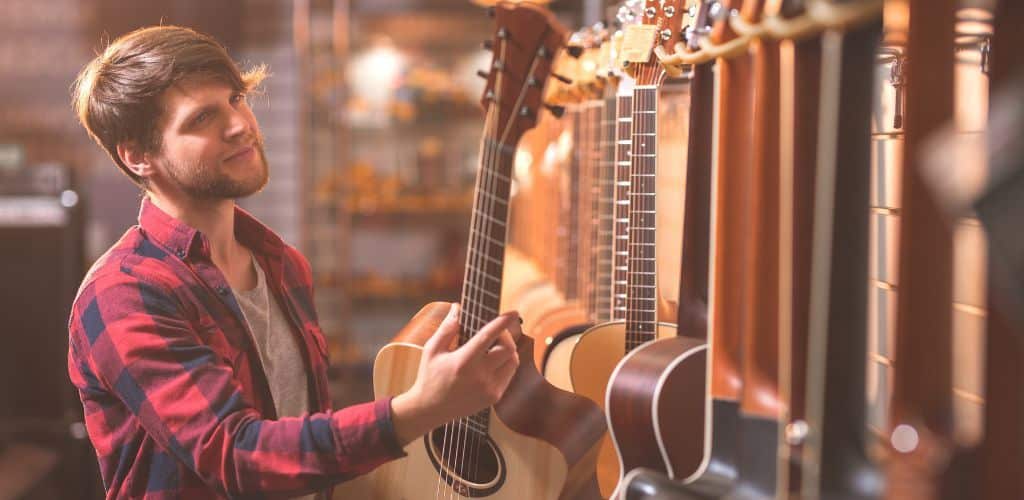
Ernie Ball strings are generally priced competitively, making them accessible for players on a budget. Their Slinky series offers excellent value without compromising on quality.
D’Addario strings are similarly priced, with some of their coated options slightly higher on the scale. However, their extended lifespan can justify the investment for many players.
Both brands offer bulk buying options, which can save you money in the long run. Purchasing multiple sets at once is a great way to stock up and ensure you’re always ready to play.
Specialty strings, such as those designed for specific genres or playing styles, may be more expensive. When making your selection, consider how often you play and what you need.
What the Pros Say
Let’s take a moment to explore what some professional musicians have to say about their string preferences. Their insights can provide valuable guidance for your own choices.

Many rock and pop musicians, including legends like Eric Clapton and Joe Satriani, swear by Ernie Ball strings. Their endorsement speaks to the brand’s reliability and performance in high-pressure situations.
D’Addario strings are favored by a wide range of artists, from classical guitarists to modern rock bands. Artists like John Mayer and Keith Urban have been known to use D’Addario strings for their performances.
Ultimately, player preference comes down to personal experience and sound. Many musicians experiment with both brands to find the strings that resonate with their unique style.
Online forums and social media platforms are filled with discussions about string preferences. Engaging with fellow musicians can provide insights and recommendations that help you make an informed choice.
Factors to Consider
When choosing electric guitar string, understanding the differences between wound strings and plain strings is essential for achieving your desired sound.
Wound strings typically offer a richer tone, while unwound strings provide a brighter sound and are often used for higher pitches. Many players opt for lighter strings, which can reduce string noise and make bending notes easier, while others prefer heavier gauges for a fuller sound.
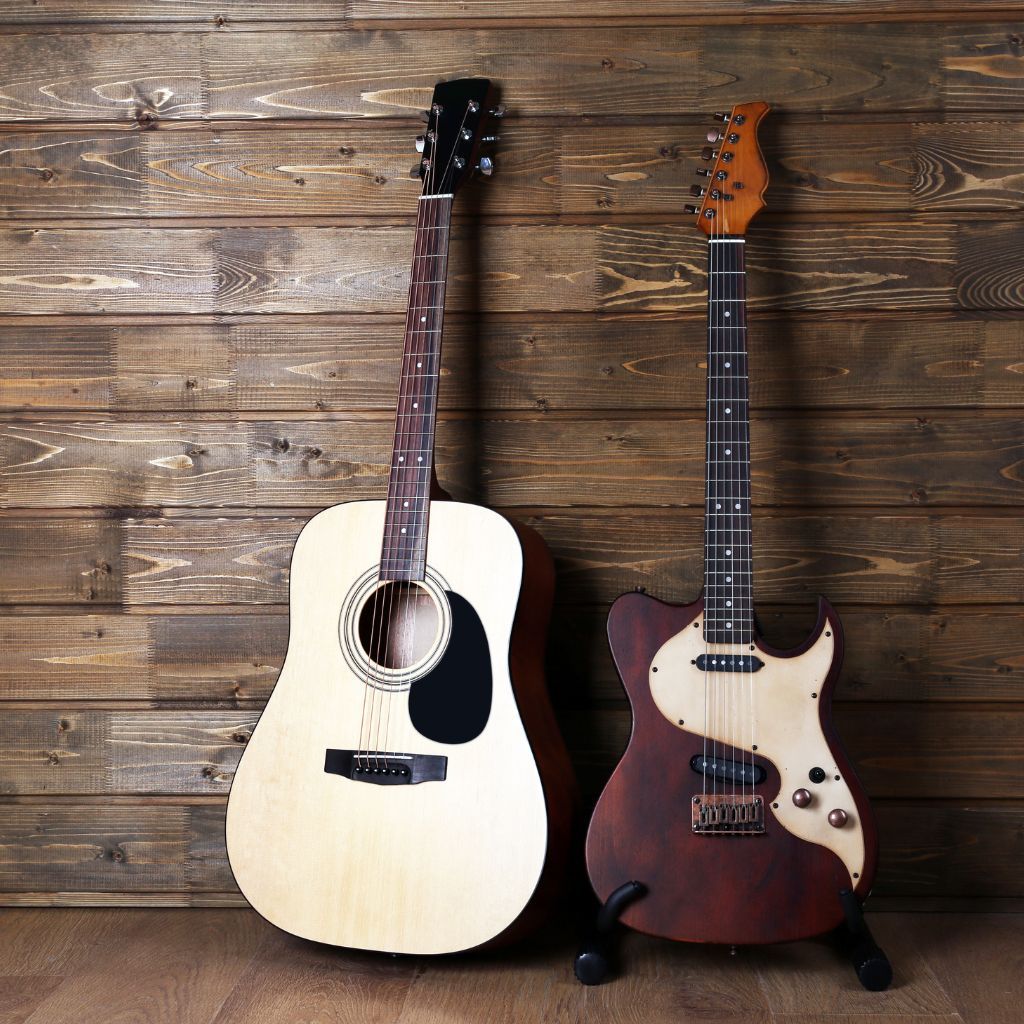
Elixir strings are popular among musicians for their coated design, which helps reduce wear and prolongs string life compared to uncoated strings from various string manufacturers.
Ultimately, selecting the right string gauge and type will enhance your playing experience and help you find the perfect balance between tone and playability.
Final Verdict:
Which Strings Are Right for You?
As we wrap up this string showdown, it’s clear that both Ernie Ball and D’Addario offer exceptional products. Your choice ultimately depends on your playing style, genre, and personal preferences.
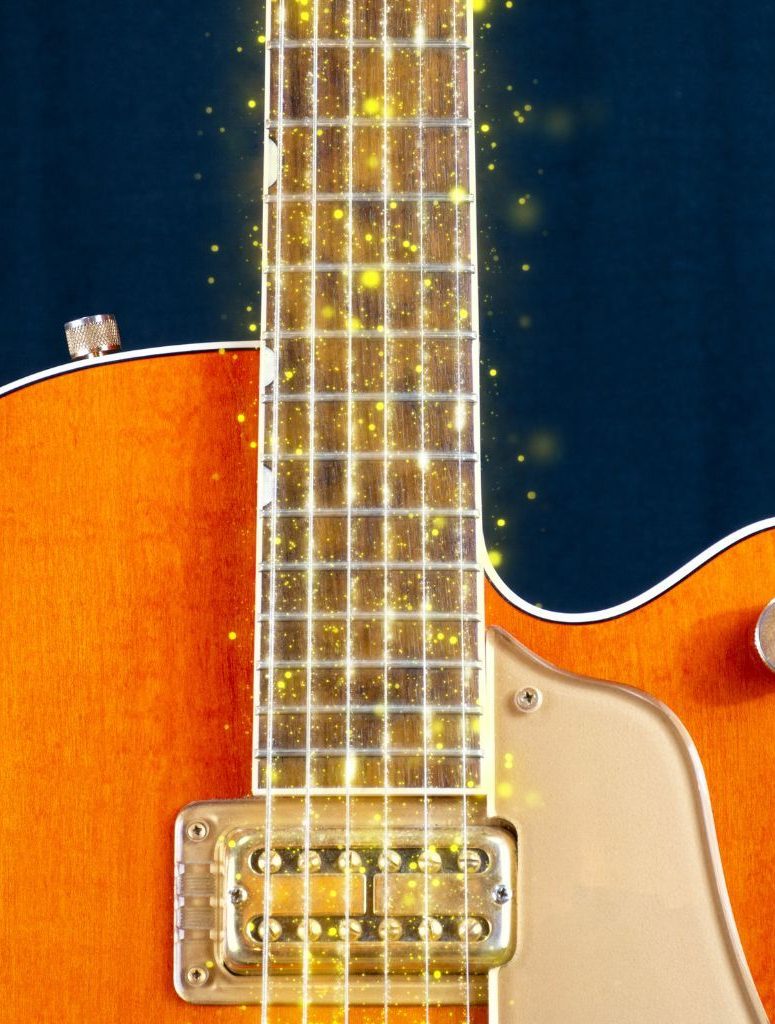
Ernie Ball for Brightness and Flexibility: If you’re looking for bright, punchy tones and a flexible feel, Ernie Ball strings might be your best bet. Their innovative design and artist endorsements make them a solid choice for many players.
D’Addario for Warmth and Longevity: If you prefer a warm, rich sound with extended durability, D’Addario strings could be the way to go. Their commitment to quality and sustainability resonates with many modern musicians.
In conclusion, whether you choose Ernie Ball or D’Addario, remember that the right strings can elevate your playing experience. Grab your guitar, experiment with different options, and let the music flow! Happy strumming!
There’s more…
If you’re searching for the perfect sound and feel for your guitar, don’t miss our article on the Best Acoustic Guitar Strings, where we break down top choices to elevate your playing experience!
FAQ's
Many renowned guitarists, including John Petrucci, Steve Vai, and Eric Clapton, use Ernie Ball strings for their exceptional quality and performance.
Ernie Ball strings are highly regarded for their superior quality, consistent performance, and innovative materials that enhance durability, tone, and playability, making them a favorite among musicians.
Notable musicians such as Keith Richards, Carlos Santana, and Billie Joe Armstrong use D’Addario strings for their reliability and rich tone.
Yes, D’Addario is known for producing high-quality strings like d’addario nyxl strings that offer excellent tone, durability, and playability, making them a popular choice among musicians of all levels.











yo, anyone else thinks bass strings need more love in these discussions? like, guitar’s cool but bass sets the vibe, y’know?
Just read your bit on electric guitar string gauges and I’ve gotta drop my two cents. You mentioned heavy gauges are great for sustain and durability but didn’t stress enough on how they can really tax your fingers, especially for the newbies. And another thing, light gauges ain’t just for beginners or folks into strumming chords; they’re pretty solid for lead players who do lots of bending. Not all about the durability, sometimes it’s the playability and sound that matter more.
Great discussion here, learned a lot about gauges today. Thanks for the insights!
Solid point @GiTgUru123. Had to switch to lighter gauges after years because of tendonitis. Never going back now; the playability is just too good.
Hey there Robert Emery, was really pulled into the debate on Ernie Ball vs. D’Addario strings. But I gotta ask, in terms of versatility across various music genres, which brand do you lean towards? Always on the hunt for that perfect string that can carry my treks through rock, jazz, and the occasional sci-fi themed music night.